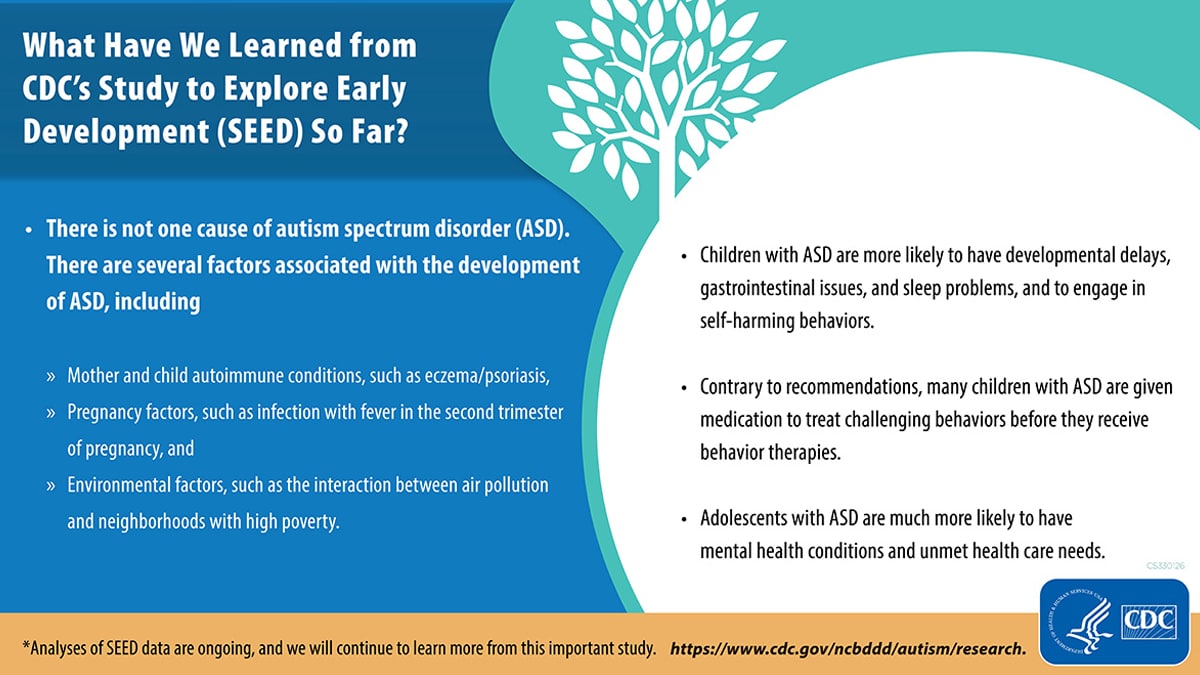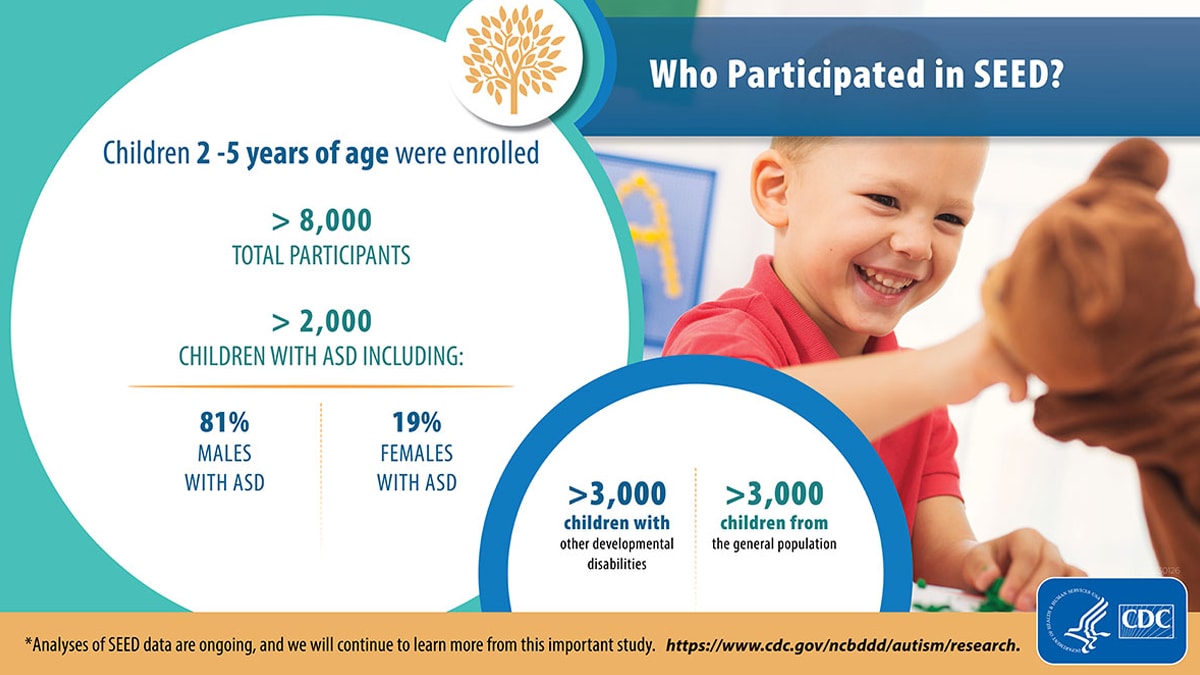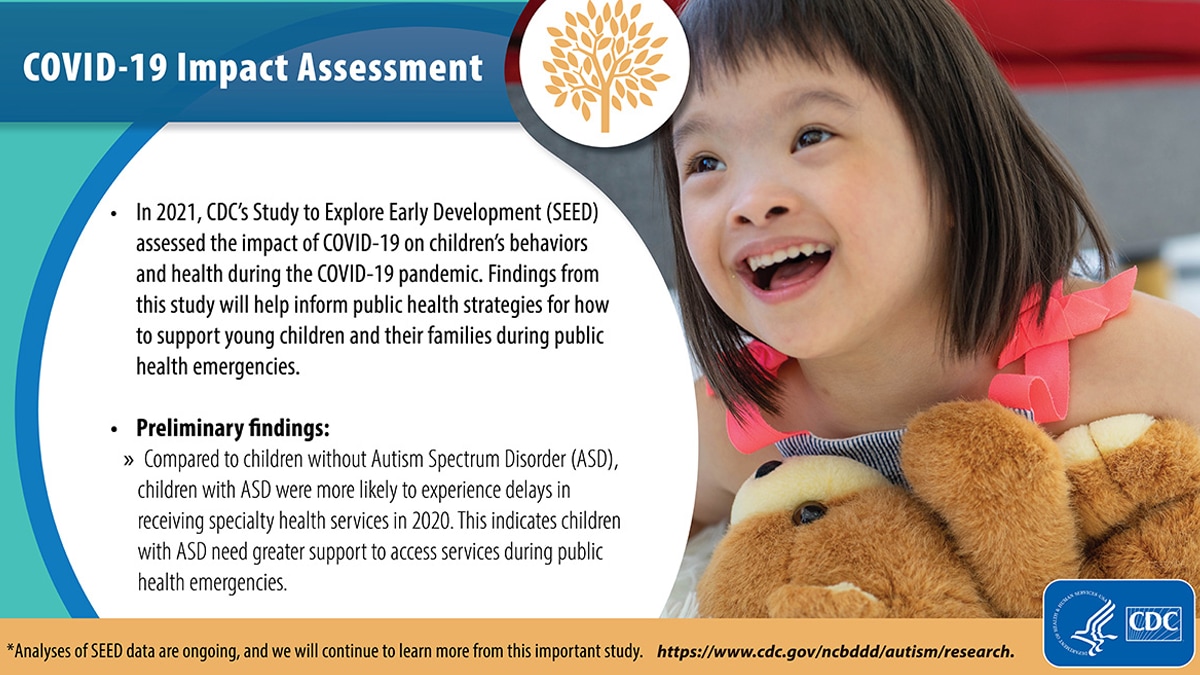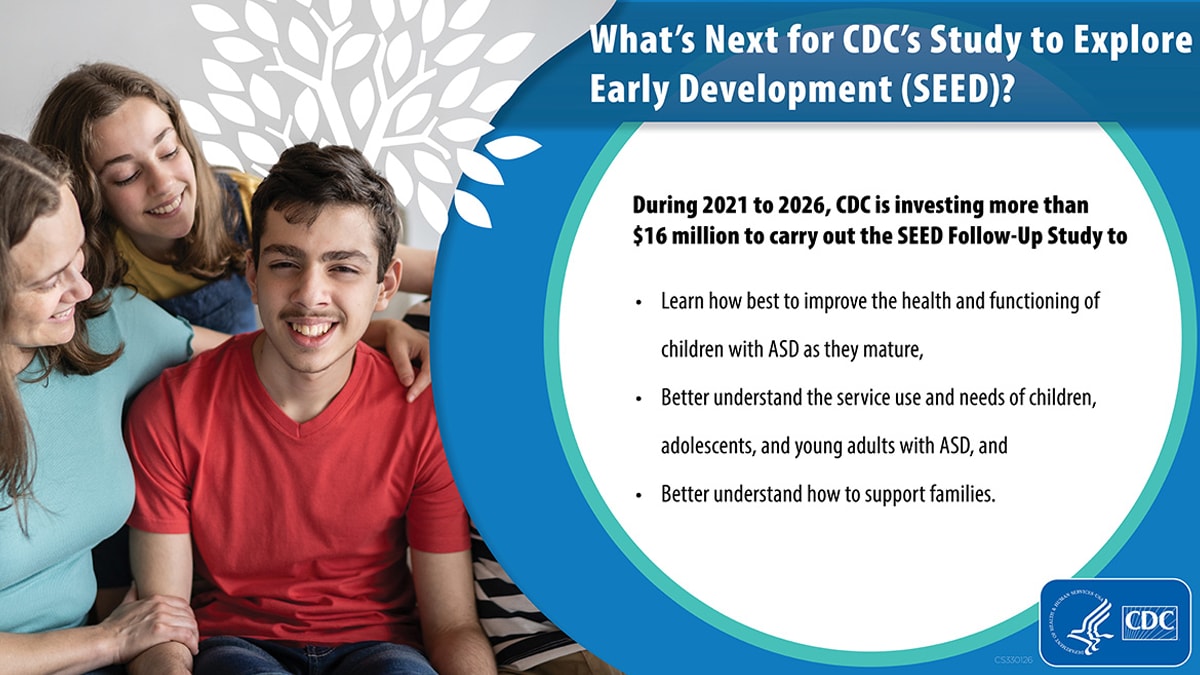At a glance
- CDC’s Study to Explore Early Development (SEED) helps us learn more about autism spectrum disorder (ASD), risk factors, and developmental characteristics.
- SEED has now been expanded to learn more about the health, functioning, and needs of children with ASD and other developmental disabilities as they mature.

Autism awareness and acceptance
CDC continues to learn more about ASD through the Study to Explore Early Development (SEED) as well as the Autism Developmental and Disabilities Monitoring (ADDM) Network. Here, we highlight the work we've done and what we've learned about ASD from SEED so far. Join the nationwide effort to raise awareness and promote acceptance of ASD and its impact on children and families.
What have we learned from CDC's SEED study so far?
- There is not one cause of ASD.
- Children with ASD are more likely to have developmental delays, gastrointestinal issues, and sleep problems, and to engage in self-harming behaviors.
- Contrary to recommendations, many children with ASD are given medication to treat challenging behaviors before they receive behavior therapies.
- Adolescents with ASD are much more likely to have mental health conditions and unmet health care needs.
Several factors are associated with the development of ASD, including:
• Mother and child autoimmune conditions, such as eczema/psoriasis
• Pregnancy factors, such as infection with fever in the second trimester of pregnancy
• Environmental factors, such as the interaction between air pollution and neighborhoods with high poverty
Analyses of SEED data are ongoing, and we will continue to learn more from this important study.

Who Participated in SEED?
- Children 2 to 5 years of age
- More than 8,000 total participants
- More than 2,000 children with ASD (81% males with ASD; 19% females with ASD)
- More than 3,000 children with other developmental disabilities
- More than 3,000 children from the general population
What's next for SEED?
SEED Follow-Up Study
During 2021 to 2026, CDC is investing more than $16 million to carry out the SEED Follow-Up study to
- Learn how best to improve the health and functioning of children with ASD as they mature
- Better understand the service use and needs of children, adolescents, and young adults with ASD
- Better understand how to support families
COVID-19 Impact Assessment
In 2021, CDC's Study to Explore Early Development (SEED) assessed the impact of COVID-19 on children's behaviors and health during the COVID-19 pandemic. Findings from this study will help inform public health strategies for how to support young children and their families during public health emergencies.

Preliminary findings
Compared with children without ASD, children with ASD were more likely to experience delays in receiving specialty health services in 2020. This indicates children with ASD need greater support to access services during public health emergencies.




